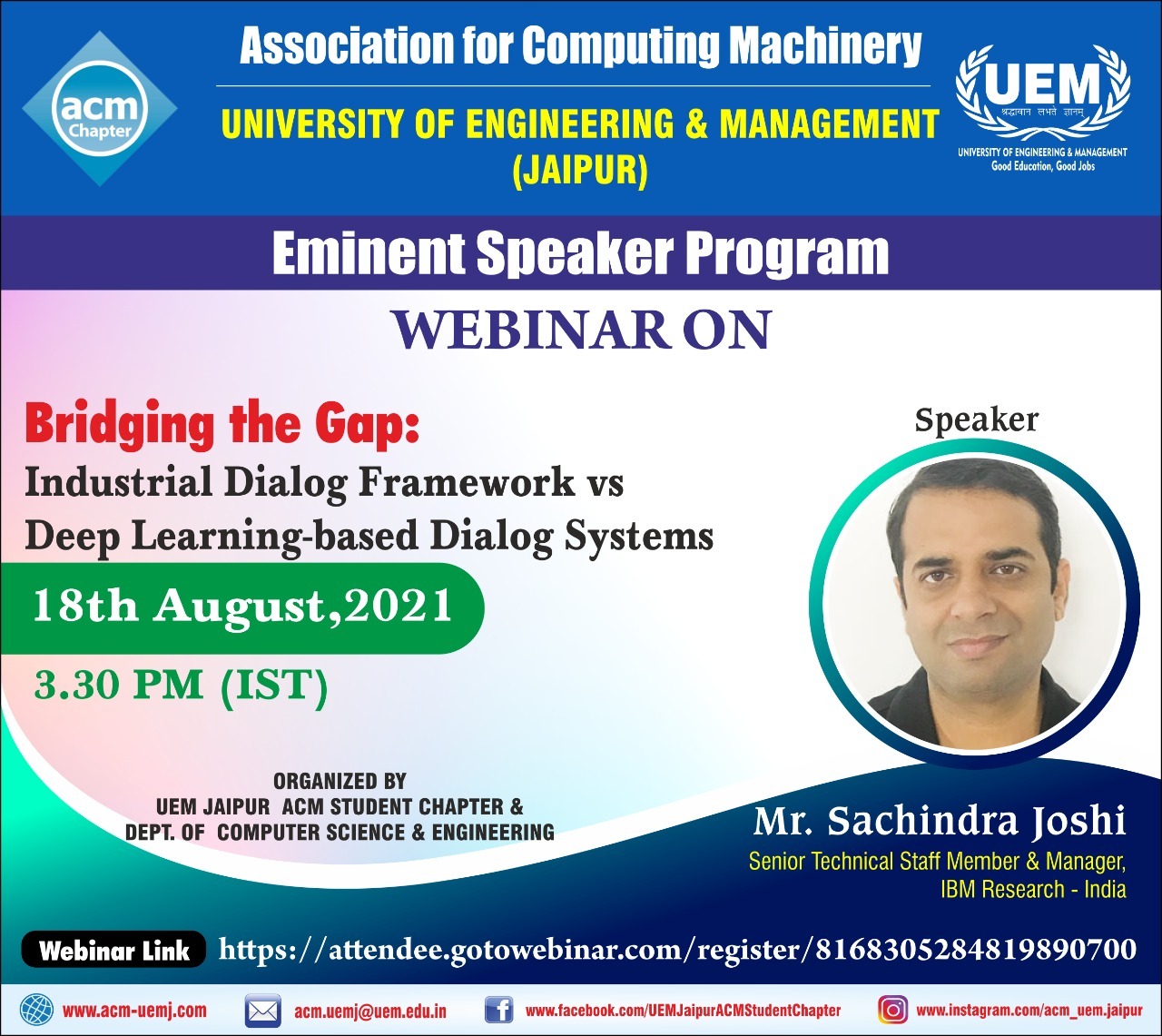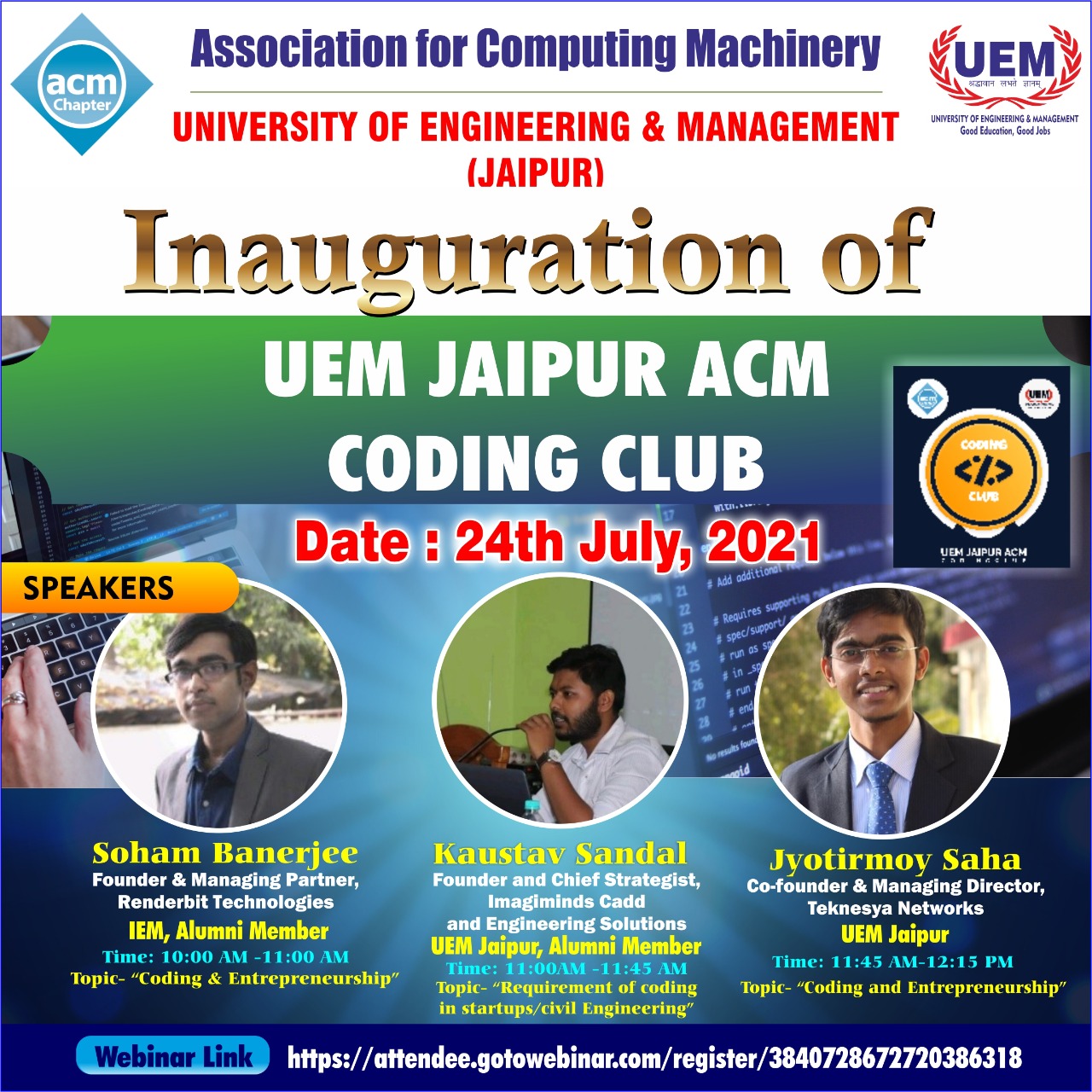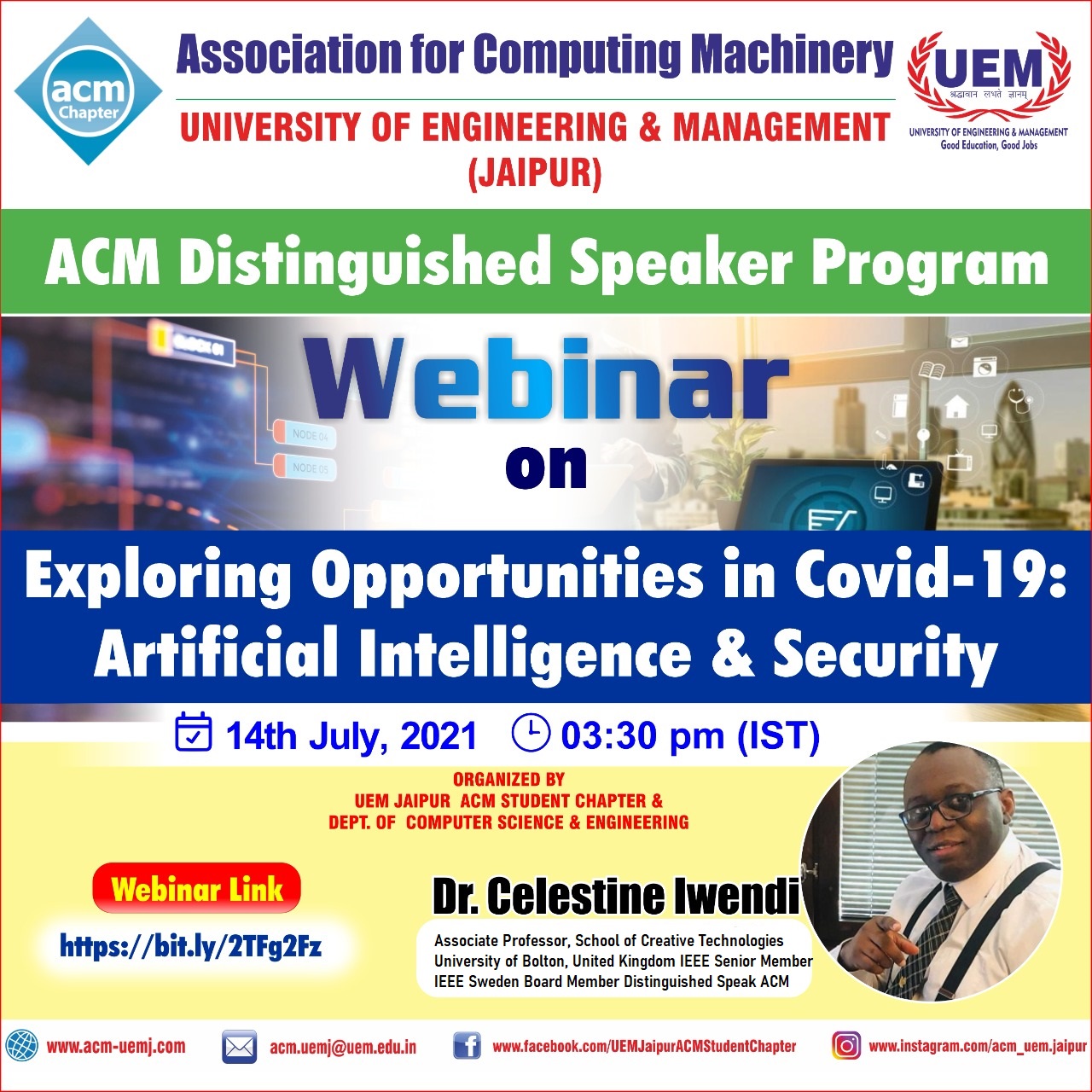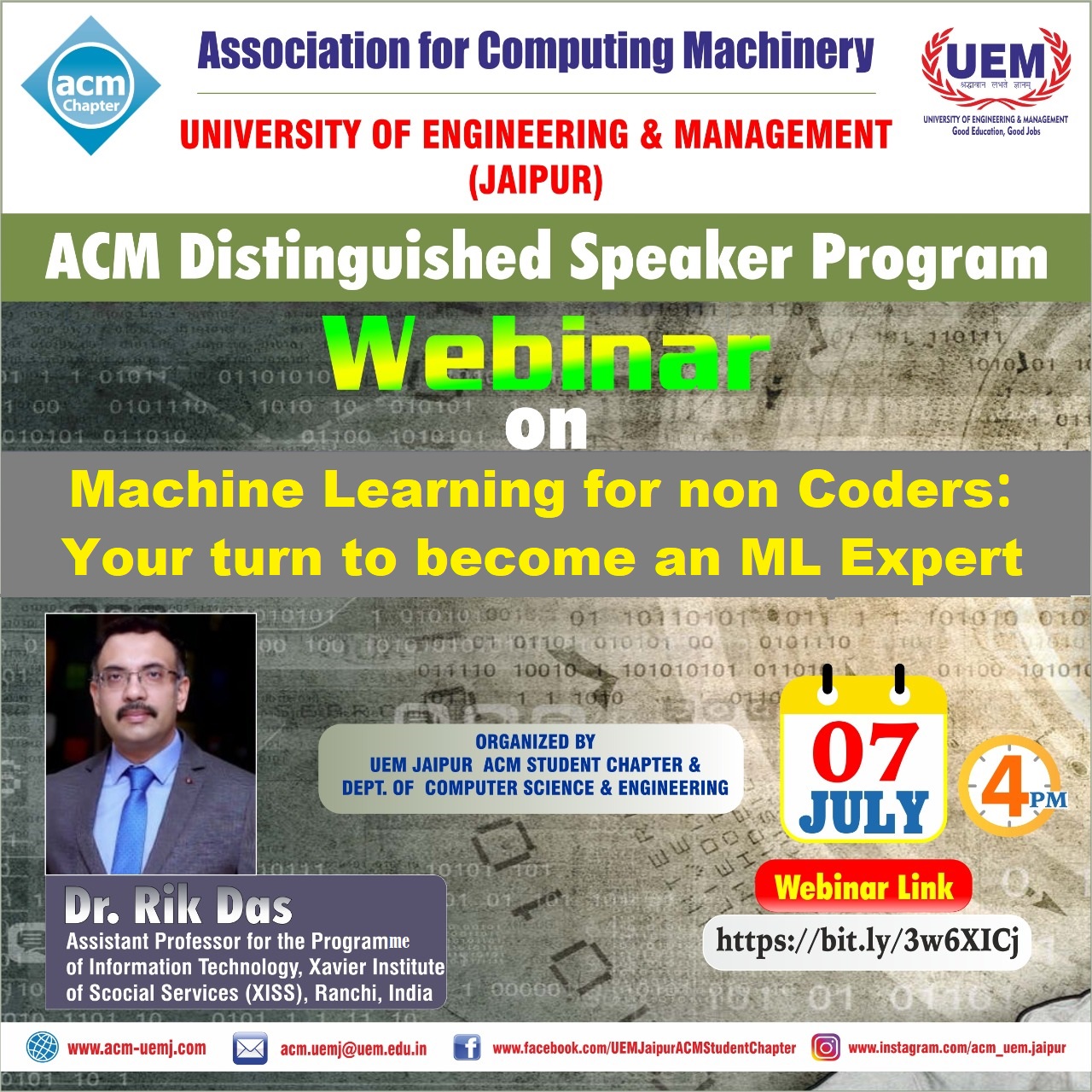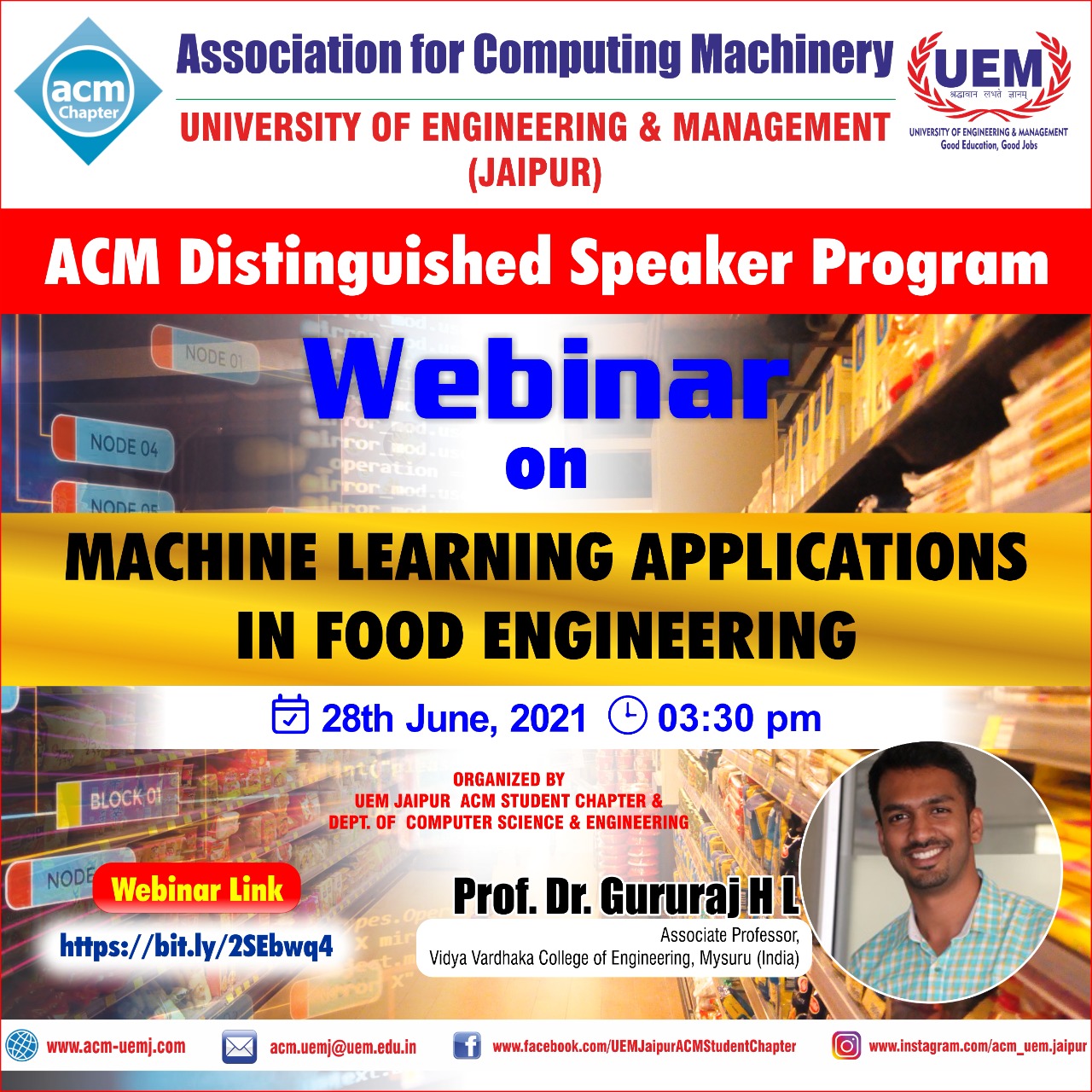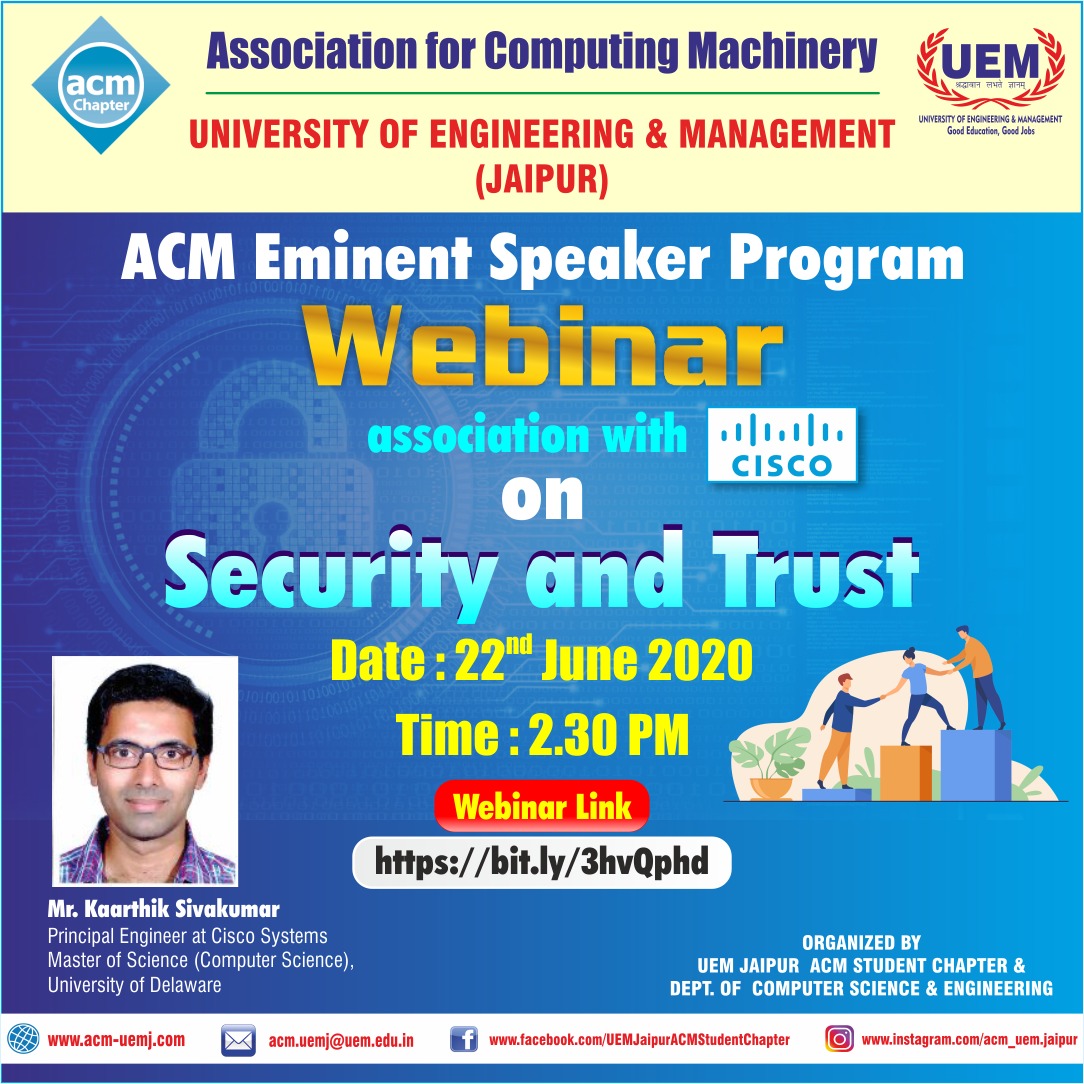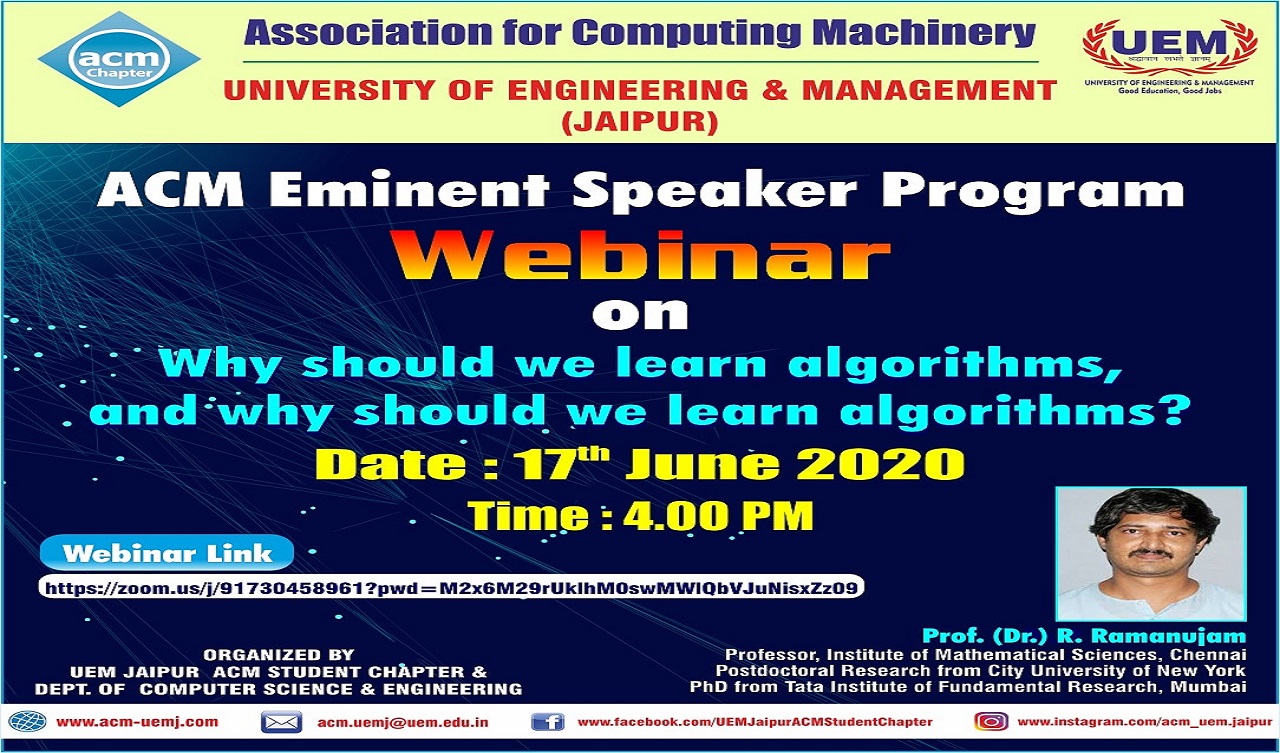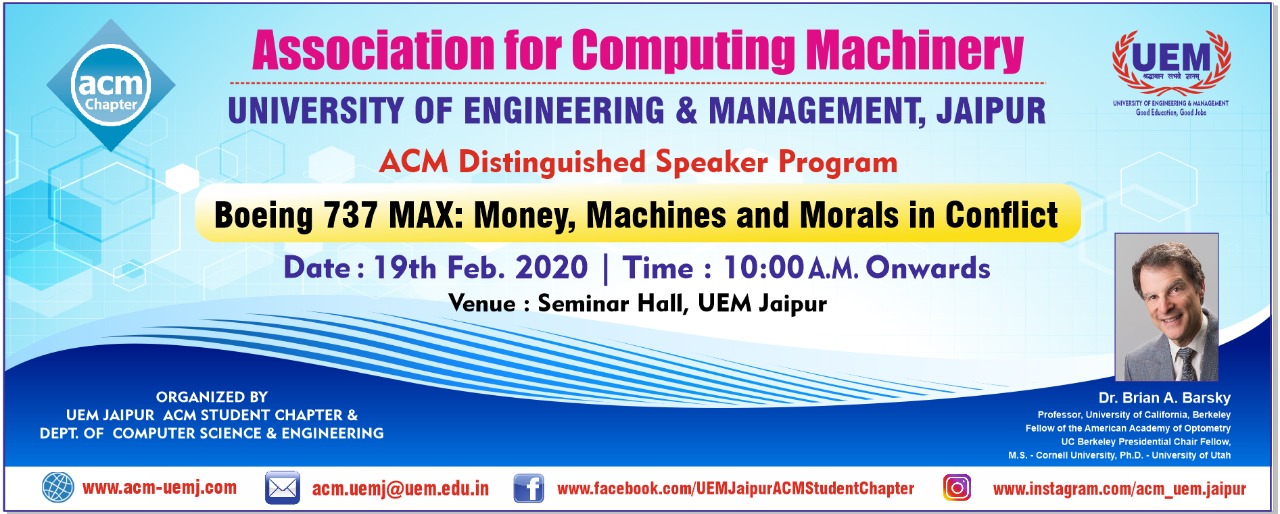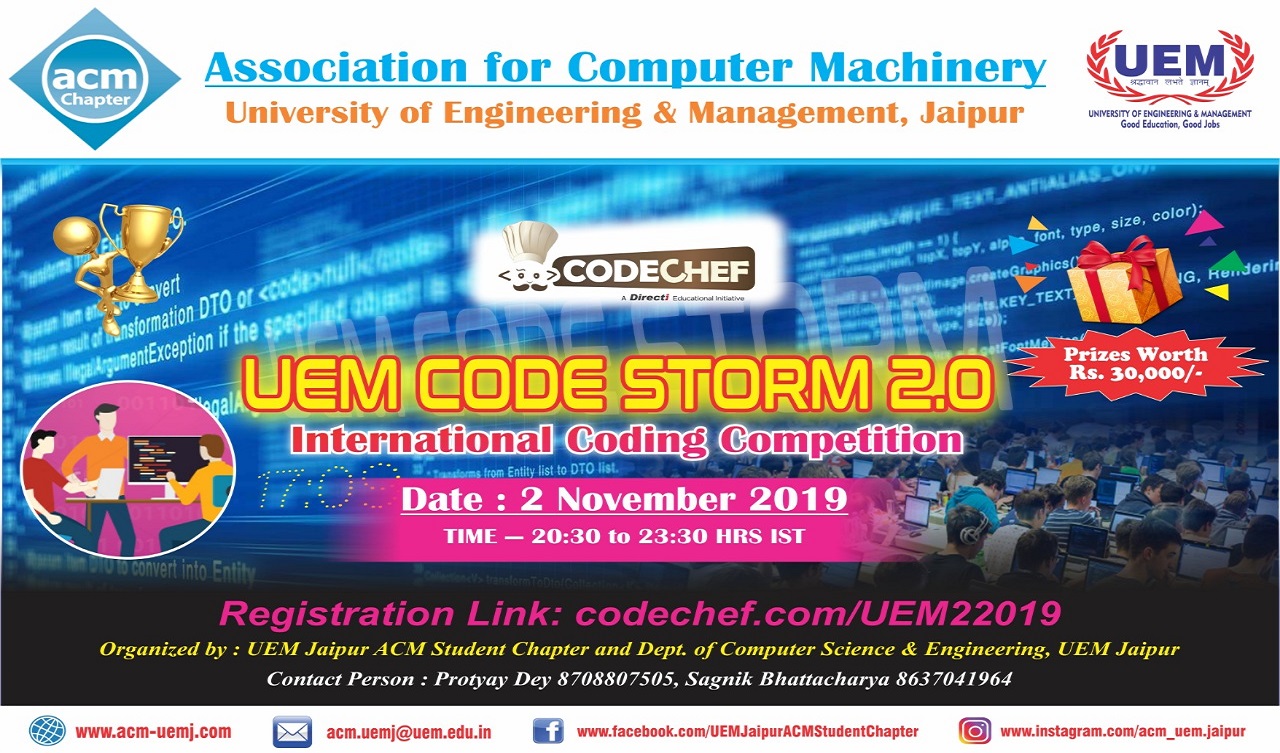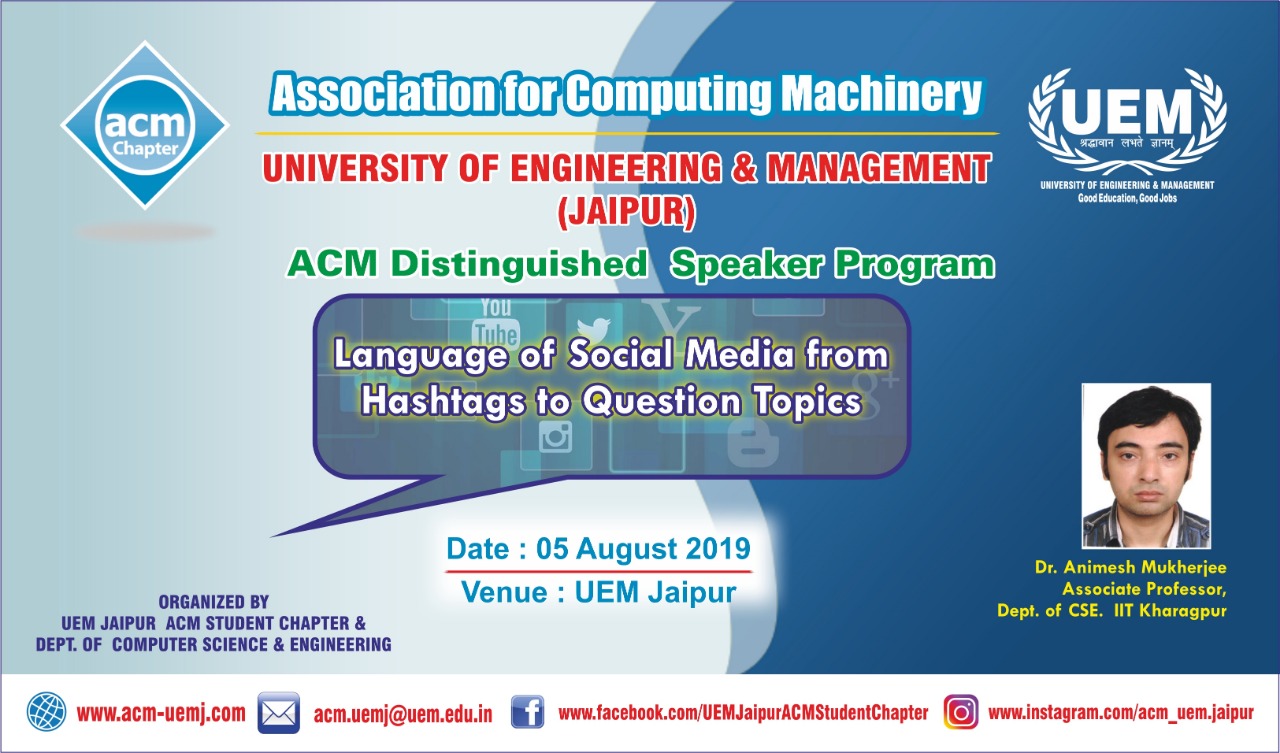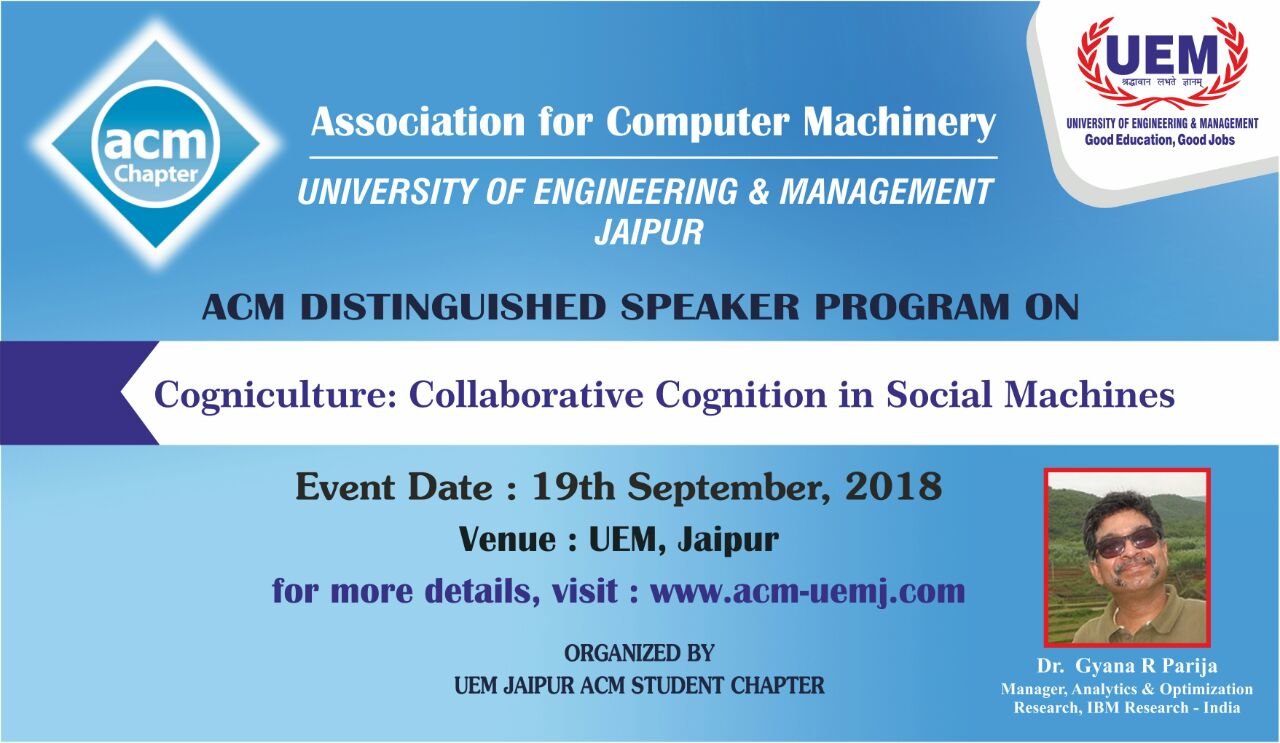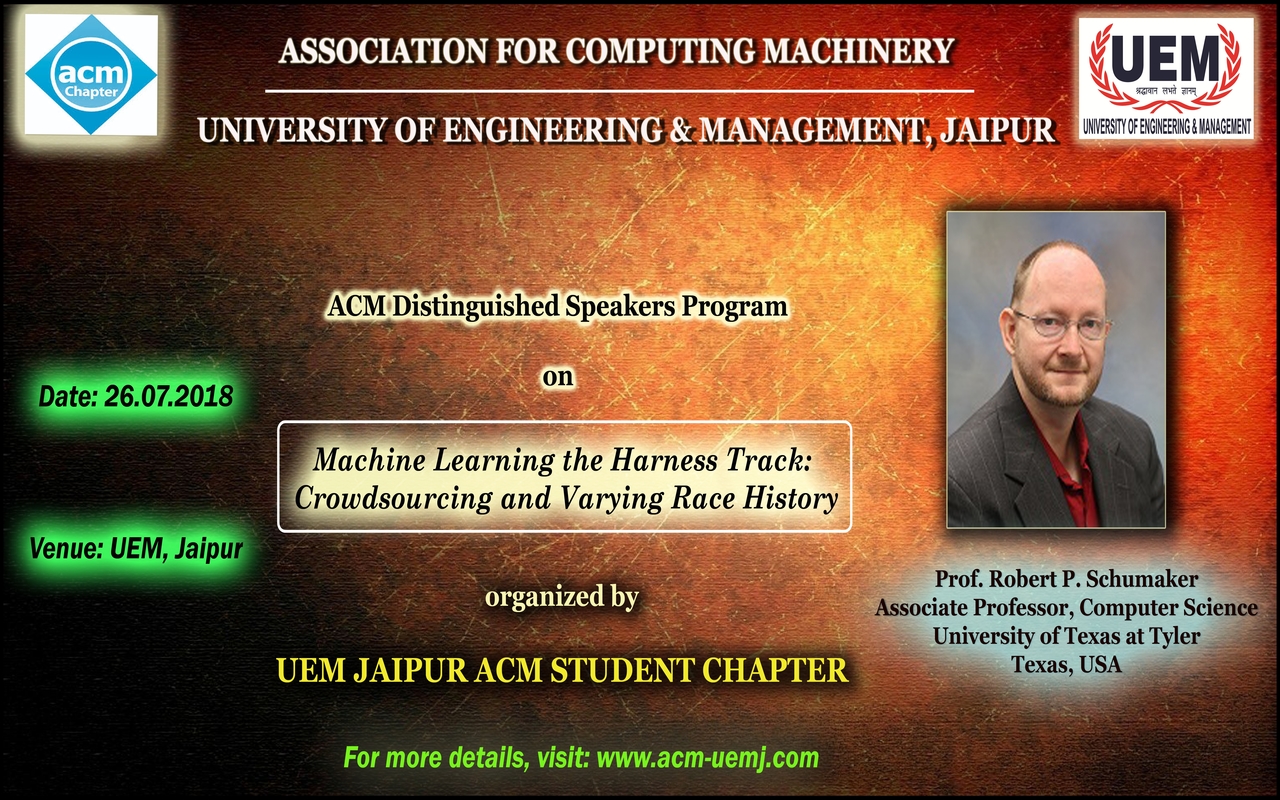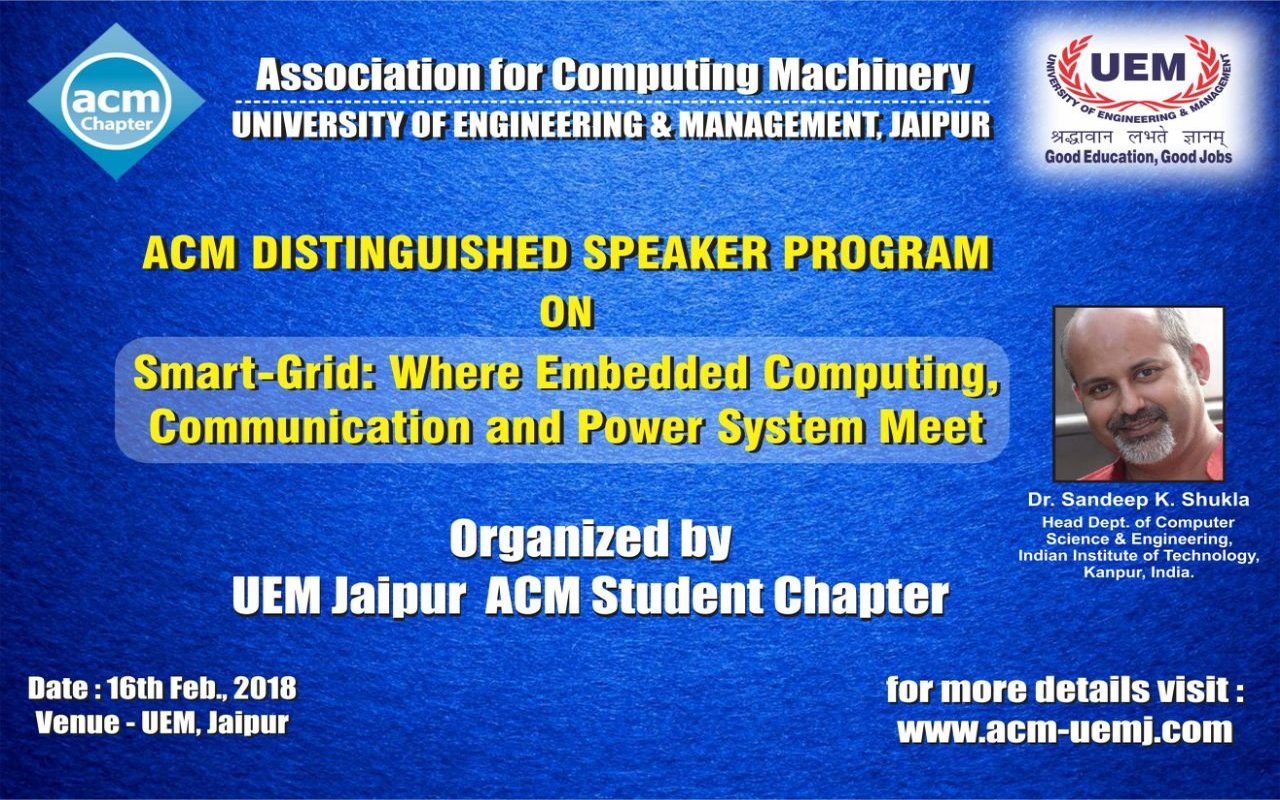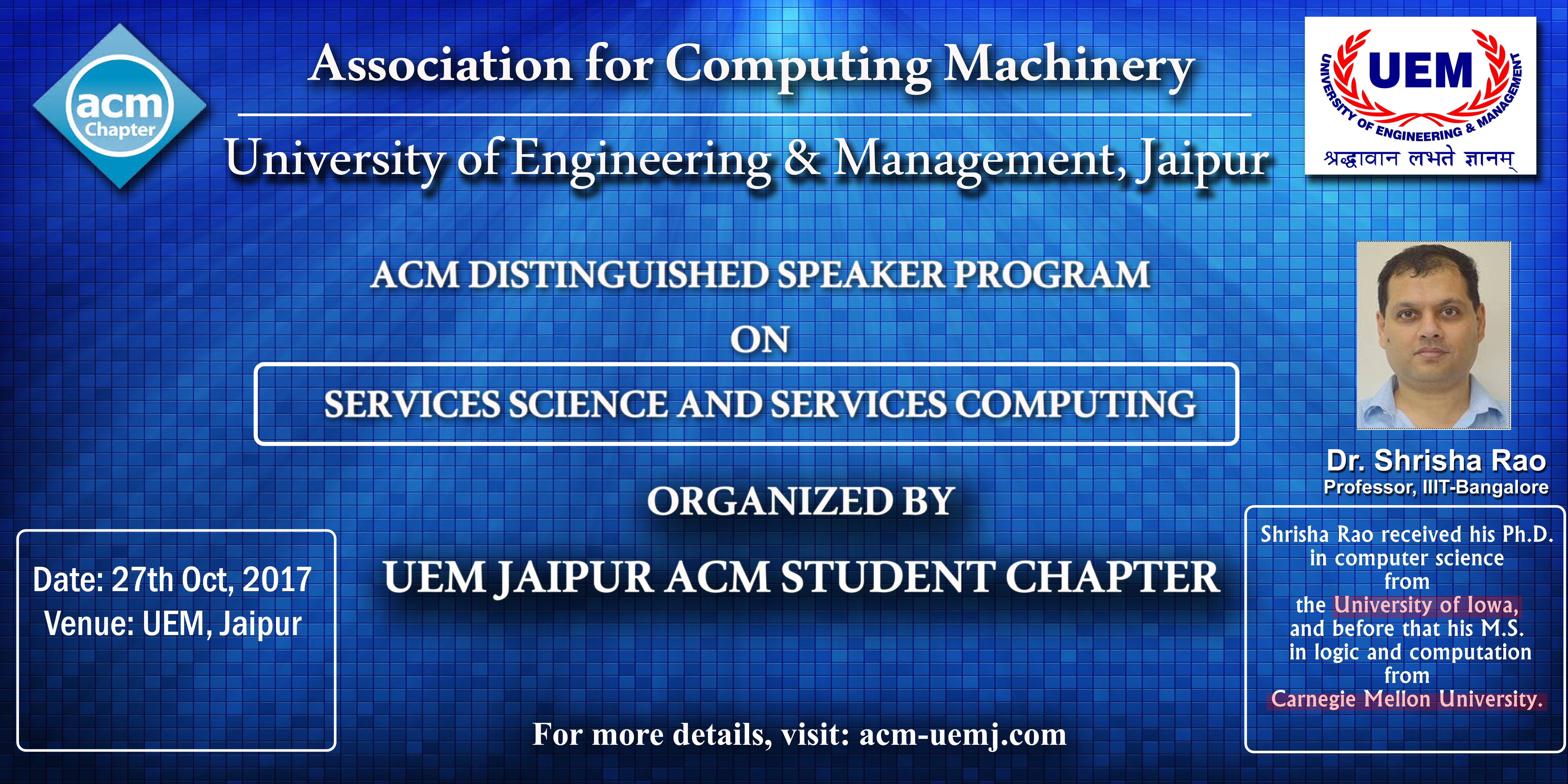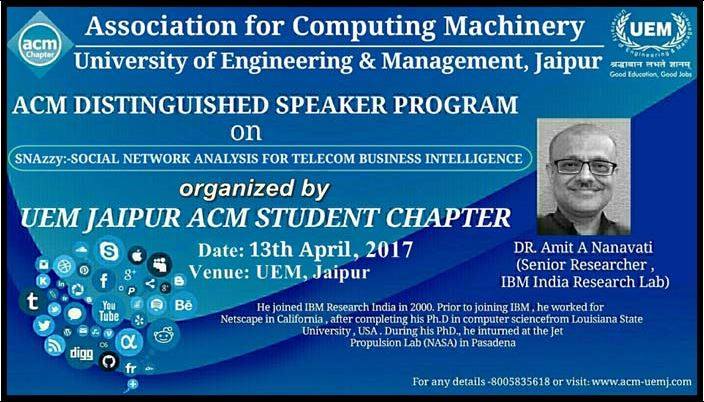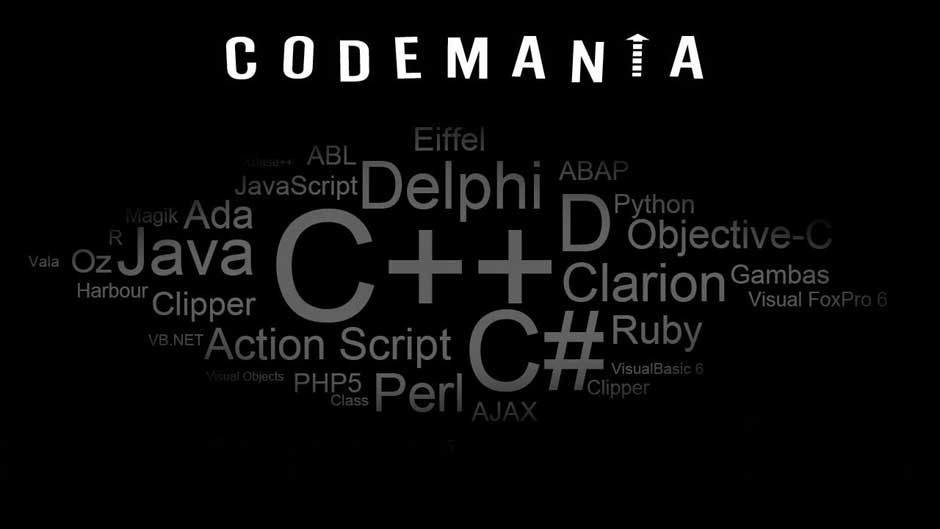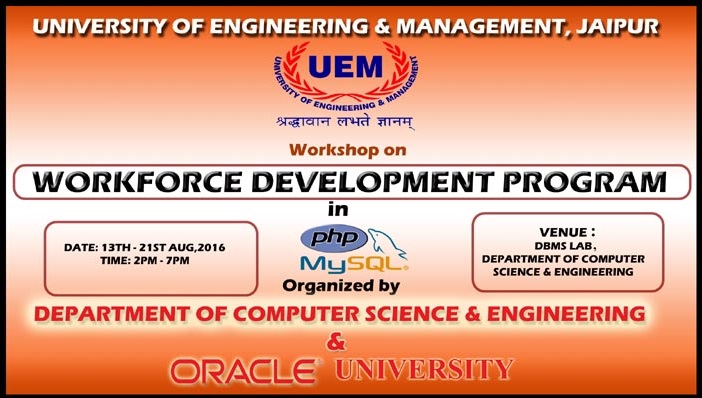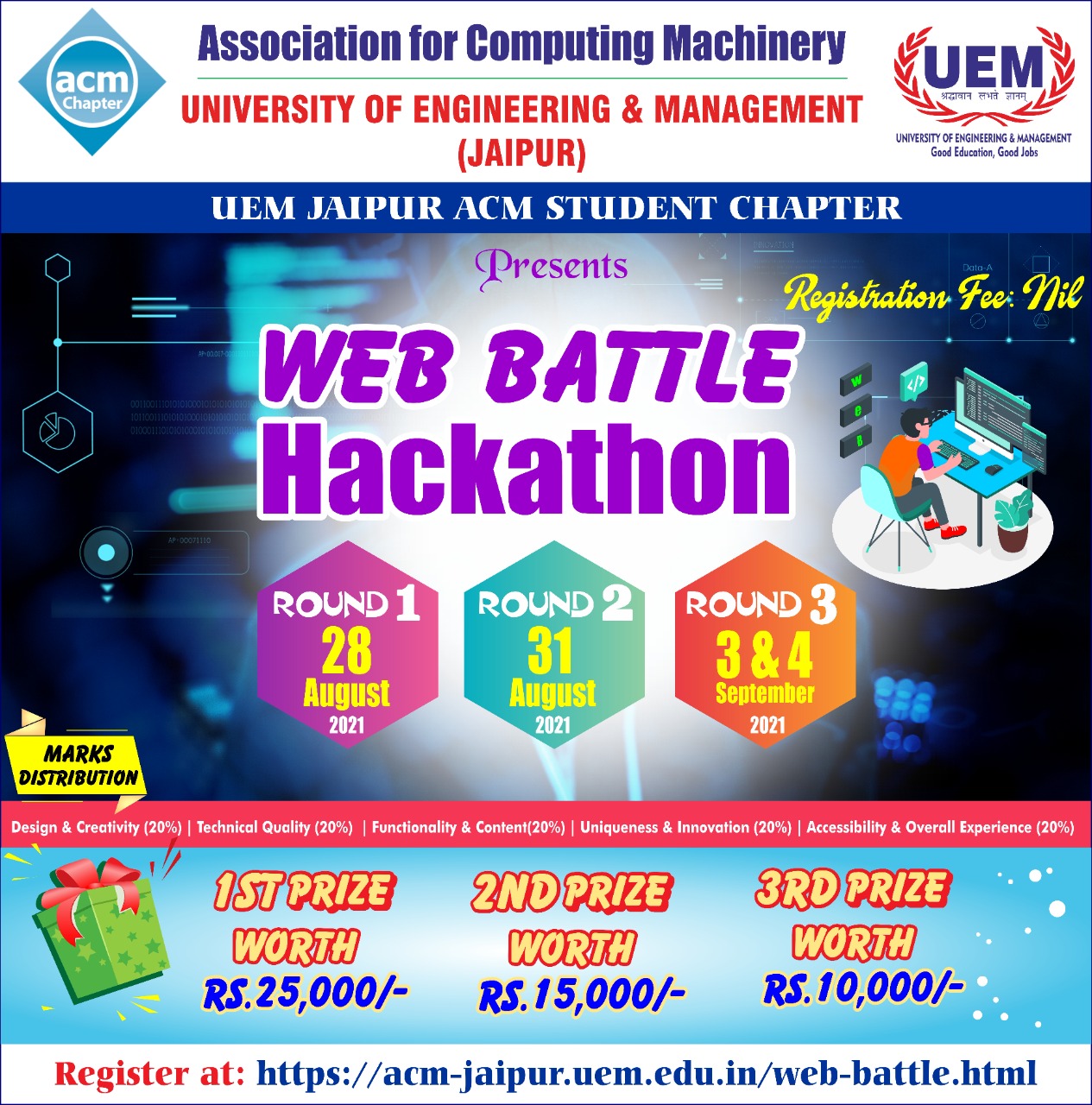
28.08.2021
Greetings From University Of Engineering & Management, Jaipur And UEMJ ACM Student Chapter. International level Hackathon WEB-BATTLE
ABOUT THE Hackathon:
Internet is the most influential medium to express ourselves and reach out to everyone in this digital world. With the use of websites and web applications, we can reach throughout the world to express ourselves, our ideas and also access unlimited information. Hence web design and development is an important skill for everyone who needs to present themselves on digital platforms. Here is an opportunity for you to ideate and develop efficient websites/web apps for a given problem statement. Their are three round Anyone can take part in this Hackathon.
Registration Fee: Nil
..............
Round 1: 28th August (whole day)
Round 2: 31th August (whole day)
Round 3: 3rd & 4th September (whole day)
Guideline:
Guideline for events-
Participants will be given a problem statement brief, 3 days prior to the event date. Participants need to solve the problem creatively within the given constraints. They are required to submit a presentation on their design. The jury will select the best design for the championship award based on the below criteria.
● Complete details should be mentioned in the registration form.
Please read all the instruction carefully
● Your entry should be submitted before the submission deadline
● Projects made using readymade CMS platforms like WordPress, Wix, Joomla, etc. or readymade templates will not be acceptable
● You are required to submit a presentation of your solution to the problem statement with detailed design documentation, in PDF format only (ONLY FOR ROUND 3)
● The entry submitted must be an original idea for Design Championship, provide references to prove the same
● Although it is not mandatory, it is advisable to showcase a video of your workflow (Thought process). Submit such videos of less than 90-sec duration or a maximum 50MB in size
● If any copyrighted content is used, specifying credits are compulsory - Your entry should not violate any terms and conditions of copyright issues. Plagiarism will not be tolerated.
● Publishing website via GitHub is mandatory (Video Link is provided).
● Marks Distribution:
↳ Design and Creativity (20%):
↳ Technical Quality (20%)
↳ Functionality and content(20%)
↳ Uniqueness and Innovation (20%)
↳ Accessibility and Overall experience (20%)
Hackathon Start:
28th August- 6th September
REGISTRATION LINK:
Registration link
